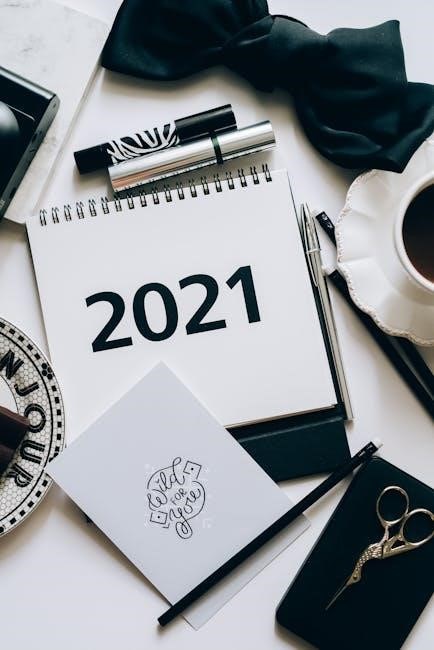end of the year report card comments for kindergarten pdf
Find adorable and professional end of year report card comments for kindergarten. Download instant PDFs and make your teacher life easier!
End-of-year report card comments for kindergarten are essential for summarizing progress, celebrating achievements, and providing constructive feedback to parents and students. They highlight academic, social-emotional, and creative growth, offering a positive and encouraging overview of the year. These comments are tailored to kindergarten needs, focusing on development, creativity, and readiness for future challenges.
1.1 Importance of Meaningful Feedback in Kindergarten
Meaningful feedback in kindergarten is crucial for guiding young learners’ development. It helps students understand their progress, builds confidence, and strengthens communication between teachers, parents, and children. Constructive comments highlight strengths and areas for growth, fostering a positive learning environment. By providing specific, encouraging feedback, educators help kindergarten students develop academically, socially, and emotionally, preparing them for future challenges and nurturing a lifelong love of learning.
1.2 Purpose of End-of-Year Report Cards
End-of-year report cards serve as a comprehensive summary of a kindergarten student’s progress, achievements, and growth throughout the academic year. They provide parents with insights into their child’s academic, social, and emotional development, while also highlighting strengths and areas for improvement. These reports are essential for setting future goals and ensuring a smooth transition to the next grade level, offering a clear and positive outlook on the student’s educational journey.
Tips for Writing Effective Report Card Comments

Use clear, specific language to highlight strengths and areas for growth, ensuring comments are constructive and tailored to individual student needs, fostering positive development and understanding.
2.1 General Guidelines for Constructive Feedback
When writing report card comments, focus on specific, observable behaviors and achievements. Use positive language to highlight strengths while gently addressing areas for improvement. Ensure feedback is clear, concise, and actionable, providing parents and students with a meaningful understanding of progress. Balance praise with constructive suggestions, emphasizing growth and readiness for future challenges. Avoid vague statements and instead, offer concrete examples to support your comments, making them both informative and encouraging for continued development.
2.2 How to Personalize Comments for Individual Students
Personalizing report card comments ensures each student feels valued and understood. Start with the student’s name to add a personal touch. Highlight specific strengths, such as “always participates enthusiastically in group activities” or “shows remarkable creativity in art projects.” Tailor comments to individual needs, celebrating progress and offering gentle suggestions for growth. Include examples of achievements, like mastering letter recognition or improving sharing skills. Use encouraging language to motivate and inspire further development, ensuring each comment reflects the student’s unique journey and potential.

Positive Comment Ideas for Kindergarten Report Cards
Highlighting strengths like curiosity, creativity, and kindness fosters confidence. Celebrate progress in social skills, problem-solving, and academic milestones. Use encouraging language to inspire continued growth and enthusiasm for learning.

3.1 Academic Achievement and Progress
Recognize students’ growth in literacy, numeracy, and problem-solving skills. Highlight their ability to identify letters, count, and demonstrate curiosity in learning. Comment on their progress in completing tasks independently and showing enthusiasm for new challenges. Acknowledge improvements in memory, attention, and critical thinking. For example, “Consistently shows curiosity in learning, excels in counting, and demonstrates growing confidence in problem-solving.” Use specific examples to celebrate their academic journey and readiness for future challenges.
3.2 Social-Emotional Development
Highlight students’ growth in social-emotional skills, such as sharing, cooperation, and empathy. Comment on their ability to express emotions appropriately and build positive friendships. Acknowledge their progress in taking responsibility for actions and showing kindness to peers. For example, “Consistently demonstrates empathy, cooperates well with classmates, and uses words to express feelings effectively.” Celebrate their development in self-awareness and social skills, fostering a positive classroom environment.
3.3 Creativity and Problem-Solving Skills

Recognize students’ creativity and problem-solving abilities, such as imaginative thinking, resourcefulness, and confidence in exploring ideas. Highlight their ability to approach challenges with curiosity and determination. For example, “Shows creativity in art projects and problem-solving by thinking outside the box.” Celebrate their growth in critical thinking and innovation, essential for future success. Emphasize how these skills foster confidence and readiness to tackle new challenges in a supportive classroom environment.
Making the End of the Year Memorable
End the year with meaningful activities that celebrate students’ growth, fostering joy and closure. Create lasting memories while building excitement for future endeavors and new challenges ahead.

4.1 Kindergarten Graduation Ideas
Kindergarten graduations are a joyful way to celebrate students’ achievements. Consider organizing a mini ceremony with caps and gowns, awarding personalized certificates, and showcasing their work. Include performances, like songs or skits, to highlight their talents. Involve families with photo booths, refreshments, or memory books. These events create lasting memories, acknowledging their growth and readiness for the next step. Make it a special day filled with pride and excitement for everyone involved.
4.2 Ending on a Positive Note
Ending the year on a positive note is crucial for fostering a sense of accomplishment and excitement for the future. Include heartfelt compliments in report cards, such as expressing pride in their growth or highlighting their unique strengths. Offering well wishes for the summer or upcoming grade levels adds a personal touch. Ensure the tone is encouraging and uplifting, leaving students and families with a lasting sense of pride and optimism for the next steps in their educational journey.

Customizing Report Card Comments
Customizing report card comments involves using adaptable PDF templates and tailoring feedback to individual students’ progress and strengths, ensuring personalized and meaningful end-of-year assessments for each child.
5.1 Using PDF Templates for Flexibility
Using PDF templates offers flexibility and convenience for teachers to personalize kindergarten report card comments. These templates provide pre-written feedback that can be easily customized to suit individual students’ progress. With editable fields and options to add specific examples, teachers can tailor comments to highlight strengths and areas for growth. PDF templates save valuable time while ensuring professional and meaningful assessments that support students’ development.

5.2 Tailoring Comments to Student Needs
Tailoring report card comments to individual student needs ensures personalized feedback. Teachers can highlight specific achievements, note areas for improvement, and set goals for future growth. By incorporating examples from the classroom, comments become more relevant and meaningful. This approach fosters a positive and supportive environment, helping students and parents understand progress and plan for continued development. Personalized comments also demonstrate a teacher’s dedication to each child’s unique educational journey.

Proofreading and Editing Tips
Proofreading ensures clarity and accuracy in report card comments. Check for grammatical errors, maintain a positive tone, and use clear language.
6.1 Ensuring Clarity and Accuracy
Ensuring clarity and accuracy in report card comments is crucial for effective communication. Review each comment for grammatical errors and readability. Use specific examples to support feedback, making it meaningful and actionable. Avoid vague statements and ensure each comment aligns with the student’s performance and progress. Clear language helps parents and students understand strengths and areas for growth, fostering a positive and supportive learning environment. This attention to detail ensures comments are both informative and inspiring.
6.2 Avoiding Common Mistakes
When writing report card comments, avoid using overly general or vague language, as it may not provide meaningful feedback. Refrain from comparing students or making subjective judgments. Ensure comments are balanced, highlighting strengths while gently addressing areas for improvement. Avoid using overly technical jargon that parents might not understand. Proofread to eliminate grammatical errors and ensure clarity. By avoiding these common pitfalls, teachers can create clear, constructive, and supportive comments that guide student growth effectively.
Additional Resources for Teachers
Teachers can access printable worksheets, educational templates, and PDF guides to streamline report card writing. These resources offer customizable comments and ideas for meaningful feedback.
7.1 Printable Worksheets and Activities
Printable worksheets and activities provide teachers with ready-to-use tools for assessing student progress and crafting thoughtful report card comments. These resources often include customizable templates, creative exercises, and engaging activities tailored for kindergarten students. They cover a range of skills, from academics to social-emotional development, and are designed to save time while ensuring comprehensive feedback. Many worksheets are available in PDF formats, making them easy to download and print for classroom use or report card preparation.
7.2 Educational Templates and Guides
Educational templates and guides offer structured formats for creating comprehensive report cards. Many resources provide editable PDFs, allowing teachers to customize comments and tailor feedback to individual students. These tools often include sample phrases, checklists, and detailed frameworks to ensure clarity and consistency. Guides also offer tips on phrasing and organization, helping educators communicate effectively with parents. They are designed to streamline the report-writing process, saving time while maintaining professionalism and thoroughness in end-of-year evaluations.

